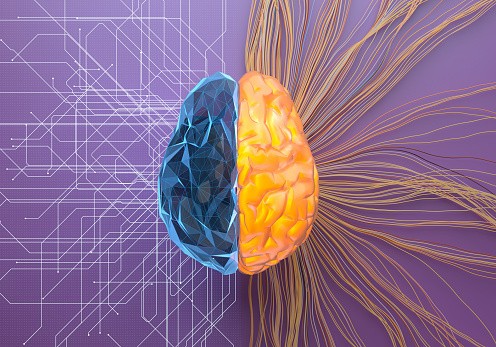An AI algorithm developed by a team of researchers from Lithuania could prove extremely valuable in the future when it comes to diagnosing Alzheimer's Disease.

In a report by ScienceAlert, the AI algorithm has shown itself to be over 99% accurate in identifying specific changes in the brain that could lead to Alzheimer's.
This is massive news, especially when you consider the fact that it can take a really long time for a human doctor to properly diagnose the disease.
By the time the diagnosis is officially made, it's often too late to slow the damage down.
The artificial intelligence analyzed data taken from fMRI brain scans of 138 individuals. From this data alone, the AI is able to pinpoint signs of so-called mild cognitive impairment (MCI).
This is defined as a step towards cognitive decline, which is perhaps the biggest hallmark of Alzheimer's.
It's also worth noting that MCI often doesn't come with physical symptoms. A person could seem all perfectly sharp one day, and then the dementia symptoms set in almost rapidly.
With this new AI algorithm, there is an excellent chance that brain damage can be slowed down significantly.
While human doctors do have the skills to diagnose Alzheimer's Disease by looking for MCI, they're nowhere near as fast or even as accurate as techniques that employ AI and deep learning. That's because the machines can infer from mountains of data.
AI For Detecting Alzheimer's: How Does It Work?
Rytis Maskeliūnas, a professor of informatics from Lithuania's Kaunas University of Technology (KTU), has this to say about why the AI algorithm is almost 100% accurate: "Modern signal processing allows delegating the image processing to the machine, which can complete it faster and accurately enough. Of course, we don't dare to suggest that a medical professional should ever rely on any algorithm 100 percent. Think of a machine as a robot capable of doing the most tedious task of sorting the data and searching for features."
Basically, what Maskeliūnas meant is that an AI algorithm can do almost all of the boring work that involves sorting out data without getting annoyed or burned out.
That's one of the biggest parts of the human equation, which, while potentially helpful, can also affect the accuracy of the end result, not to mention the speed at which the result was produced.
In an official post about the study on the KTU news portal, they mentioned that the deep learning model they developed used a modification of ResNet 18, which is a residual neural network.
They trained the AI on almost 80,000 fMRI images which led to insane detection accuracies of 99.99% (early MCI vs. AD), 99.95% (late MCI vs. AD), and 99.95% (MCI vs. early MCI).
What's Next for the Algorithm?
The team, however, are still not satisfied with the results. They're saying that despite the high numbers they achieved, it's still not an indicator of actual real life performance.
Right now, Maskeliūnas and his peers are working with medical institutions to gather even more data, presumably to make their artificial intelligence as foolproof as possible.
This article is owned by Tech Times
Written by RJ Pierce




